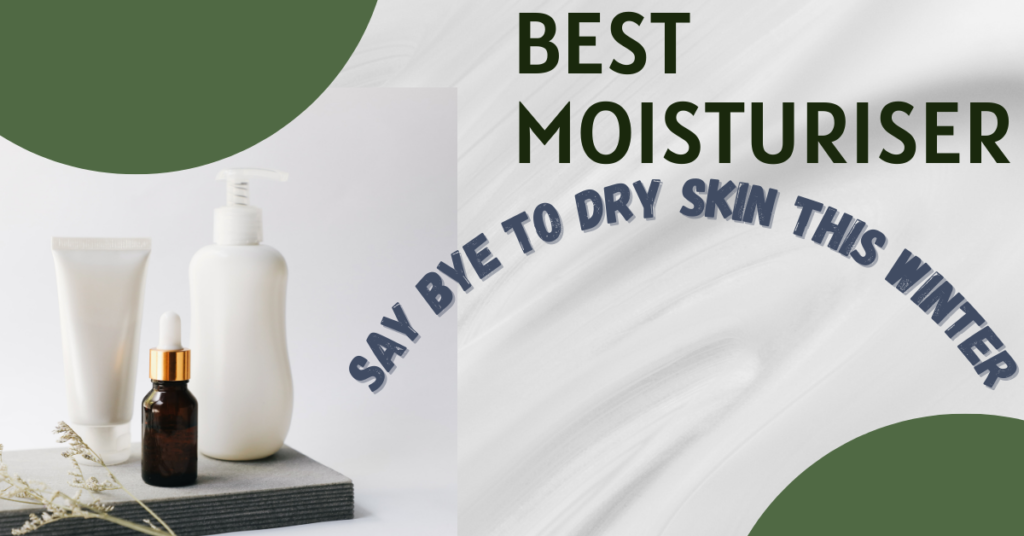
As winter approaches, a ‘BEST MOISTURISER’ become an essential part of daily skincare. Cold weather and low humidity levels often strip the skin of its natural moisture, leading to dryness and irritation. A good moisturizer helps to lock in hydration, creating a protective barrier against harsh environmental elements. It also soothes and nourishes the skin, preventing common winter woes like flakiness and cracking. Choosing the right product tailored to your skin type—whether it’s cream-based for dry skin or gel-based for oily skin—ensures optimal care. Incorporating a moisturizer into your routine not only keeps your skin healthy but also promotes a radiant, smooth complexion during the colder months.
Types of ‘MOISTURISER’
There are several types of moisturisers available in the market that you can buy according to your need and purpose for what you want for your skin.
Let’s see what are the types of moisturisers:
- Creams: These are thicker and richer, making them ideal for dry or mature skin. They provide intense hydration and help lock in moisture.
- Lotions: Lighter than creams, lotions are suitable for normal to slightly oily skin. They absorb quickly and provide hydration without feeling heavy.
- Ointments: These are the thickest and most occlusive, often used for extremely dry or sensitive skin. They are great for healing cracked or irritated areas.
- Gels: Gel-based moisturizers are lightweight and water-based, making them perfect for oily or acne-prone skin. They hydrate without clogging pores.
- Serums: While not traditional moisturizers, some hydrating serums provide a boost of moisture and can be layered with other products for added hydration.
- Butters: Products like shea butter or cocoa butter are dense and nourishing, ideal for very dry skin or rough areas like elbows and knees.
Now let’s dive into the best moisturisers that you can buy this winter to get rid of dry skin and white lines.
- CETAPHIL – DAM
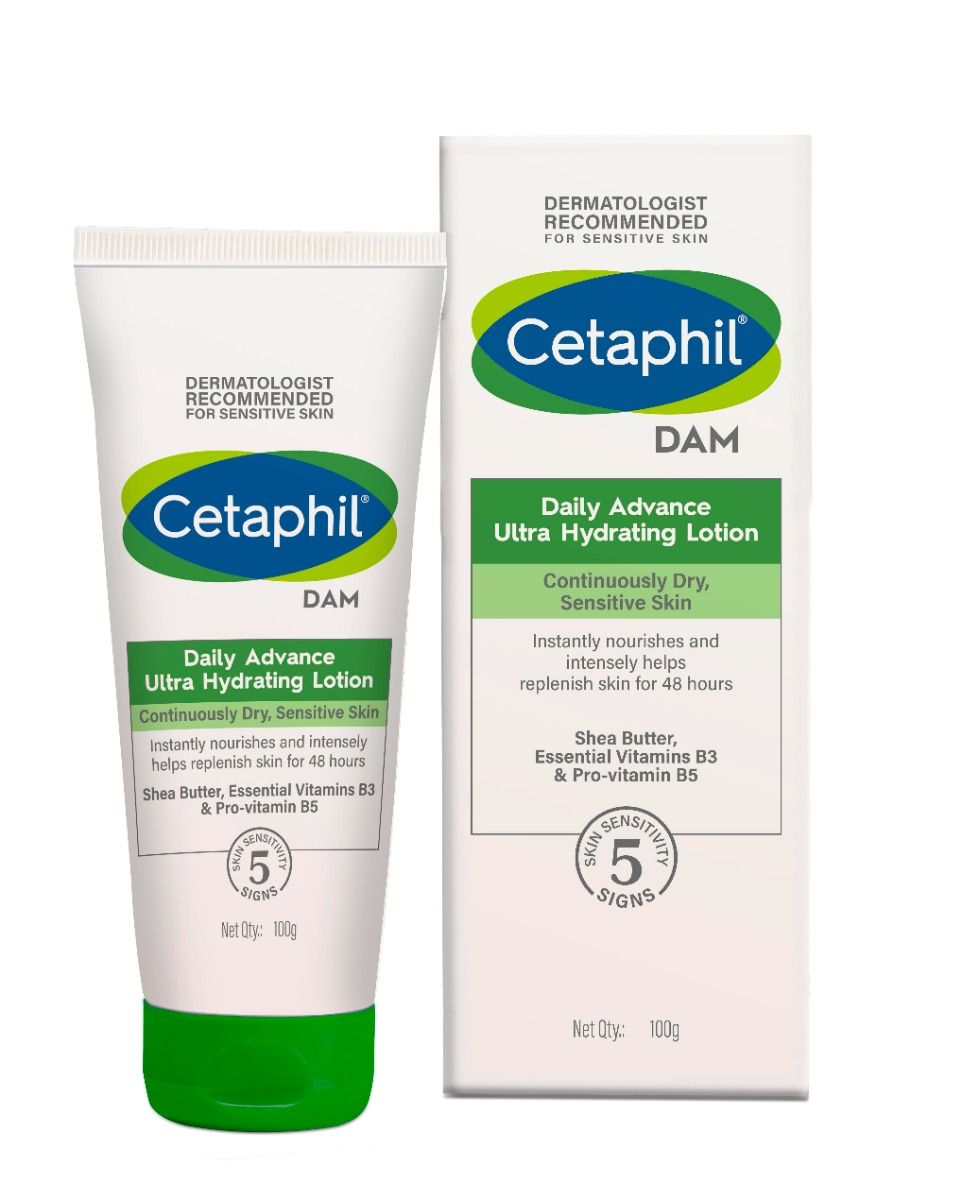
SKIN TYPE : PERSISTENTLY DRY and SENSITIVE
Its non-greasy and non-comedogenic formula guarantees prolonged hydration and promotes a smooth skin texture.
- Re’equil – Ceramide and Hyaluronic Moisturiser
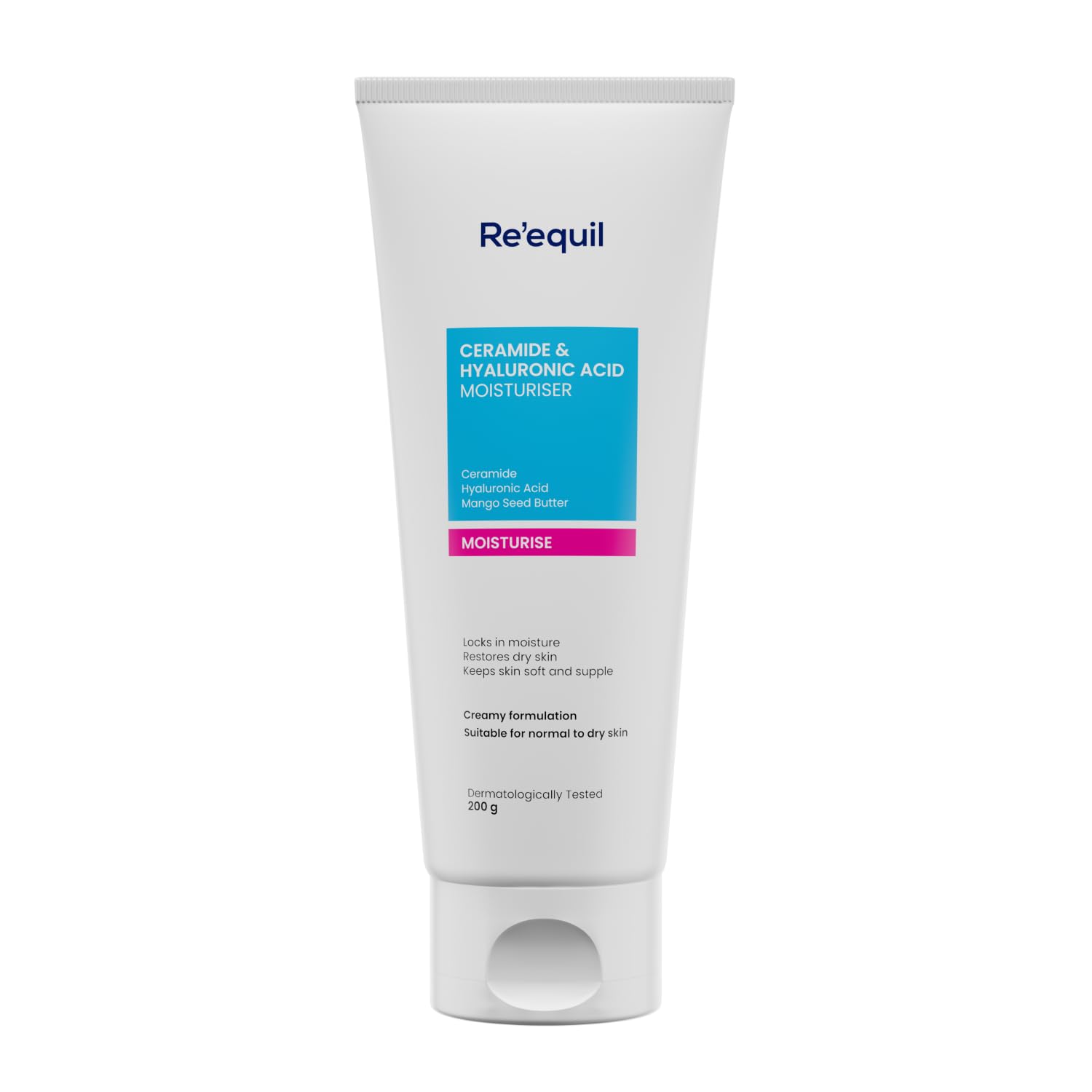
SKIN TYPE : NORMAL TO DRY
Ceramide & Hyaluronic Acid Moisturiser is formulated with anti-inflammatory ingredients and anti-irritants to combat the irritation associated with dry and dehydrated skin.
- MINIMALIST – VITAMIN B5 Moisturiser
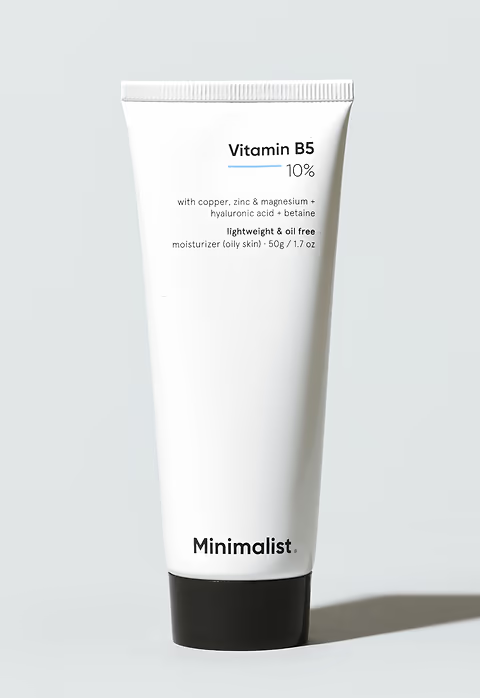
SKIN TYPE : OILY, COMBINATION
An everyday moisturizer for hydrating, nourishing and repairing skin. A lightweight, oil-free product with high concentration of Vitamin B5.
- Dot&Key – Skin care barrier Moisturiser
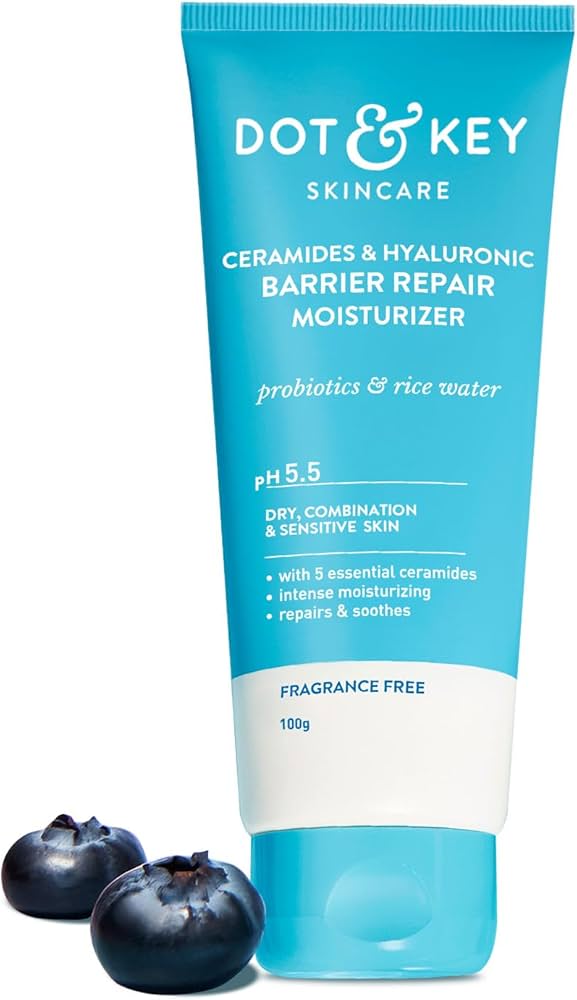
SKIN TYPE : DRY, NORMAL, SENSITIVE
Repairs & strengthens skin barrier while locking in moisture. Nourishes dry, damaged skin with hyaluronic acid.
- MINIMALIST – MARULA OIL Moisturiser
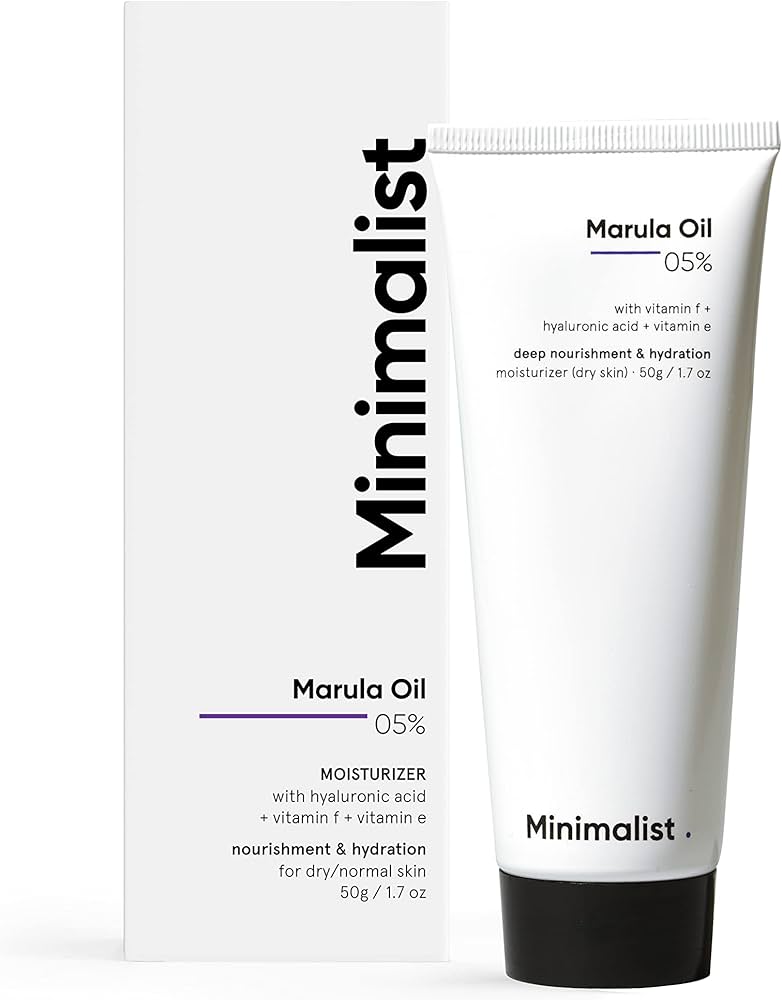
SKIN TYPE : DRY TO DAMAGED
This moisturizer stays true to its claim. Keep the skin hydrated for long time and is non sticky also it’s a heavy cream but skin absorbs at good rate.
- NIVEA – CREAME

SKIN TYPE : ALL SKIN TYPE
It’s a good choice for those who need rich hydration and intensive care. NIVEA Creme is free of preservatives and absorbs quickly despite its thicker consistency.
- EVION – VITAMIN E and ALOE VERA Moisturiser

SKIN TYPE : ALL SKIN TYPE
This moisturiser is a great option those who want lest chemical in there moisturiser as it has good balance of Aloe Vera and Vitamin E.
FAQ’S
1. What’s the best moisturizer for dry skin?
If you have dry skin, go for moisturizers packed with ingredients like hyaluronic acid, glycerin, or ceramides. Cream-based ones are usually a great choice because they’re richer and provide long-lasting hydration.
2. Should people with oily skin even use a moisturizer?
Definitely! Even oily skin needs moisture. The trick is to pick a lightweight, gel-based moisturizer that won’t clog your pores. Look for something labeled “non-comedogenic.”
3. How often should I be using moisturizer?
Twice a day is ideal—once in the morning and once before bed. Apply it right after washing your face to lock in the moisture. If the weather’s really dry, you might need to reapply during the day.
4. What ingredients should I avoid if I have sensitive skin?
Sensitive skin can react to things like alcohol, synthetic fragrances, or harsh chemicals like parabens. Instead, look for products with calming ingredients like aloe vera or chamomile.
5. Can I use my body lotion on my face?
It’s better not to. Body lotions are usually heavier and may have ingredients that can irritate your facial skin or cause breakouts. Stick to products specifically made for your face.
6. What’s the difference between a cream and a gel moisturizer?
Creams are thicker and work best for dry or normal skin types. Gels, on the other hand, are lightweight and absorb quickly, making them ideal for oily or combination skin.
7. Is it important to use a moisturizer with SPF?
Yes, it’s a good idea to use one with SPF during the day to protect your skin from sun damage. For nighttime, though, switch to a moisturizer without SPF.
8. Do moisturizers really help with anti-aging?
They can! Many moisturizers are formulated with anti-aging ingredients like retinol, peptides, or antioxidants. These help reduce fine lines and improve the overall texture of your skin over time.
9. How can I tell if a moisturizer won’t clog my pores?
Check for the term “non-comedogenic” on the packaging. These products are designed to keep your pores clear.
10. What’s the right way to apply moisturizer?
Apply it on damp skin right after cleansing. Gently pat it in rather than rubbing too hard, and use upward motions when applying it to your face to avoid tugging on your skin.
11. Are natural moisturizers better than regular ones?
It depends on your skin type and preferences. Natural moisturizers often have fewer synthetic ingredients, which can be better for sensitive skin. However, effectiveness can vary, so it’s worth trying a few to see what works for you.
12. How long does it take to see results from a moisturizer?
You’ll probably notice your skin feels more hydrated right away. For bigger changes, like reduced dryness or irritation, give it a few weeks of consistent use.
ALSO WATCH FOR THIS WINTER –>>

Pingback: 7 BEST ROOM HEATERS - BEST OF ALL
Pingback: 7 BEST SUNSCREEN - BEST OF ALL